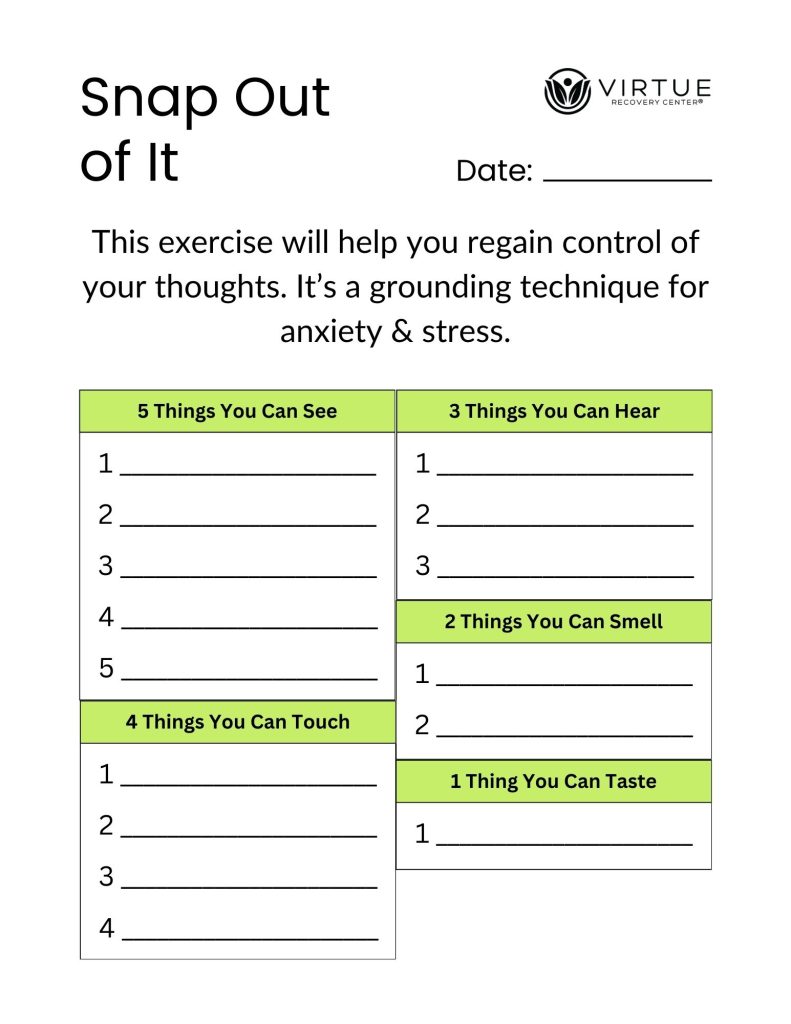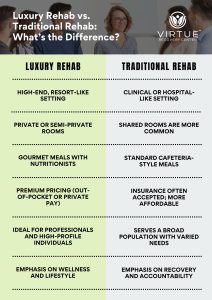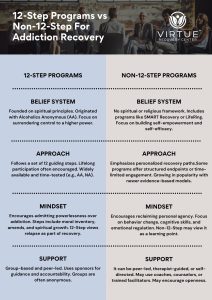Key Takeaways
- Mindfulness and grounding techniques help people in recovery manage cravings and reduce stress.
- These practices encourage self-awareness and emotional stability, improving long-term recovery outcomes.
- Incorporating mindfulness into addiction treatment supports mental health and sobriety.
Introduction
Recovering from addiction is a journey filled with challenges. Managing cravings, triggers, and overwhelming emotions can feel impossible at times. This is where mindfulness and grounding techniques can help.
Mindfulness teaches you to stay present while grounding techniques help you reconnect to the moment when cravings or stress take over. Together, these tools can support sobriety and emotional well-being. In this article, we’ll explore how mindfulness and grounding work, their benefits in recovery, and ways to make them part of your daily life.
What is Mindfulness, and How Does It Help in Recovery?
Mindfulness means focusing on the present moment without judgment. It’s about noticing your thoughts, feelings, and surroundings without letting them overwhelm you. This practice is especially helpful for people in recovery, where triggers and emotions can quickly lead to relapse.
By staying present, mindfulness helps reduce stress, calm your mind, and improve decision-making. Instead of reacting impulsively to a craving, you can pause, reflect, and choose a healthier response.
Mindfulness also builds self-awareness. You begin to understand the thoughts and patterns that fuel your addiction. This awareness allows you to break unhealthy habits and replace them with healthier ones. Practicing mindfulness regularly can improve mental health and a more substantial recovery journey.
Grounding Techniques: Staying Connected to the Present
Grounding techniques are practical tools that help you focus on the present, especially during stress or cravings. These exercises use your senses—sight, sound, touch, taste, and smell—to bring you back to the moment and reduce feelings of anxiety or overwhelm.
For example, the 5-4-3-2-1 technique is a popular grounding exercise. It involves naming:
- 5 things you can see,
- 4 things you can touch,
- 3 things you can hear,
- 2 things you can smell, and
- 1 thing you can taste.
Another effective grounding method is deep breathing. Slowly inhaling and exhaling helps calm your nervous system and reduce the intensity of cravings. Body awareness exercises, like focusing on how your feet feel against the ground, are simple ways to stay connected to the present.
Grounding techniques are especially useful because they can be done anywhere, at any time. Whether at home, in a stressful environment, or dealing with a craving, these exercises can help you stay grounded and in control.
Incorporating Mindfulness and Grounding in Addiction Treatment Programs
Many addiction treatment programs, including Virtue Recovery Las Vegas, incorporate mindfulness and grounding techniques into their approach. These practices are taught during therapy sessions, group activities, and daily routines.
Mindfulness-based therapies, such as mindfulness meditation and yoga, help individuals develop the skills to manage triggers and cravings. These practices encourage people to focus on their recovery goals and improve their mental health over time.
Grounding exercises are often used alongside other therapeutic methods to provide immediate relief during moments of stress. For example, a therapist might guide participants through a body scan or deep breathing exercise during a group session to help them relax and focus.
These techniques not only support recovery during treatment but also equip individuals with lifelong tools for managing stress, cravings, and emotional challenges.
Practical Mindfulness and Grounding Exercises to Try
Here are some easy mindfulness and grounding exercises that you can try:
- Deep Breathing
Sit in a quiet space. Inhale deeply through your nose for four seconds, hold for four seconds, and exhale slowly through your mouth for four seconds. Repeat several times until you feel calm.
- Body Scan
Close your eyes and focus on each body part, starting from your toes and moving upward. Notice any tension or sensations without judgment.
- 5-4-3-2-1 Technique
As listed earlier, use your senses to identify things around you. This exercise helps you stay present and calm during stressful moments.
- Journaling
Take a few minutes each day to write down your thoughts and feelings. Reflect on your progress, gratitude, or any challenges you’ve faced.
- Mindful Eating
Focus on the taste, texture, and smell of your food. Eat slowly and pay attention to every bite.
These exercises can be incorporated into your daily routine or used whenever you feel overwhelmed. The key is consistency—making mindfulness and grounding a regular part of your life will strengthen your recovery.
Overcoming Challenges in Practicing Mindfulness During Recovery
Practicing mindfulness and grounding isn’t always easy. Many people face distractions, emotional discomfort, or doubt whether these techniques work.
It’s normal to feel frustrated if your mind wanders during meditation or if an exercise doesn’t seem practical initially. Remember, mindfulness is a skill that takes time and practice. Be patient with yourself and celebrate small progress.
If you find it hard to stay consistent, consider seeking guidance from a therapist or joining a group that practices mindfulness together. Having support can make a big difference. Over time, these practices will become second nature, helping you stay grounded and focused on your recovery.
Conclusion
Mindfulness and grounding techniques are powerful tools in addiction recovery. You can manage cravings, reduce stress, and build emotional resilience by staying present and aware. These practices support sobriety and provide a foundation for long-term recovery.
If you or someone you know is struggling with addiction, don’t wait to seek help. Contact Virtue Recovery Las Vegas at 866-520-2861 for compassionate support and effective treatment. Together, we can help you stay grounded and achieve your recovery goals.
Grounding Worksheet
Use this Snap Out of It grounding worksheet to practice staying present during stressful moments. This simple tool helps you focus on your senses and regain control of your thoughts.

FAQs
What are mindfulness and grounding techniques for your addiction recovery journey?
Mindfulness focuses on being present and aware without judgment, while grounding connects you to the present using your senses.
How does mindfulness in addiction recovery help substance abuse treatment?
They reduce stress, improve self-awareness, and help manage cravings and triggers.
Can grounding exercises prevent cravings and triggers?
Yes, grounding exercises can interrupt cravings by refocusing your attention on the present moment.
What are some easy mindfulness exercises for beginners?
Simple exercises include deep breathing, the 5-4-3-2-1 technique, and mindful eating.
How can I make mindfulness a part of my recovery routine?
Practice daily, start small, and incorporate techniques like journaling or meditation into your schedule.
What are the benefits of mindfulness for addiction recovery?
Mindfulness helps individuals recover by reducing cravings, improving emotional regulation, and increasing self-awareness. This allows them to manage triggers better and build a healthier mindset.
Can grounding and mindfulness techniques help reduce stress?
Yes, grounding and mindfulness techniques can calm the nervous system, refocus the mind, and reduce stress by bringing attention to the present moment and creating a sense of control.
Can mindfulness and meditation help individuals in recovery at an outpatient rehab facility?
Absolutely. Mindfulness and meditation can enhance focus, reduce anxiety, and support emotional resilience, making it easier for individuals in outpatient rehab to navigate daily stressors and maintain recovery.
Can yoga and mindfulness techniques for addiction help individuals to reach their recovery goals?
Yes, yoga and mindfulness promote physical and mental well-being, reduce stress, and improve emotional stability, essential for achieving and maintaining recovery goals.
Can harnessing mindfulness in recovery help individuals stay present and teach coping skills for sobriety?
Mindfulness teaches individuals to stay present, recognize triggers without judgment, and develop healthier coping mechanisms, key skills for long-term sobriety.
Can grounding techniques work for mental health and drug addiction recovery at an inpatient residential facility?
Yes, grounding techniques help clients in residential facilities manage anxiety, reduce emotional distress, and stay focused on their recovery process, creating a foundation for lasting healing.
Where can I find a treatment facility for holistic recovery from addiction that cultivates an inclusive environment?
Virtue Recovery Las Vegas offers holistic addiction treatment programs in an inclusive, supportive environment tailored to diverse needs, including LGBTQIA+ and underserved populations. Their approach integrates traditional therapies with innovative practices, ensuring a comprehensive path to recovery. Clients can enjoy the comfort of luxury private bedrooms in rehab, promoting a serene healing space that fosters relaxation and reflection. With a focus on community and connection, Virtue Recovery Las Vegas empowers individuals to reclaim their lives and build sustainable futures.
Resources
https://pmc.ncbi.nlm.nih.gov/articles/PMC5679245/
https://greatergood.berkeley.edu/article/item/three_ways_bring_mindfulness_therapy












